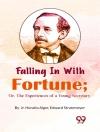Oscar Wilde’s ‘The Picture of Dorian Gray’ is a masterful exploration of aestheticism and moral duplicity, set against the backdrop of Victorian society. The novel employs a rich, lyrical prose style that encapsulates Wilde’s trademark epigrams and wit, while simultaneously delving into deep philosophical themes regarding the relationship between beauty, vanity, and moral responsibility. Central to the narrative is the portrait of Dorian Gray, which ages and bears the burden of his sins while he remains perpetually youthful and attractive, embodying the era’s tension between outward appearances and inner corruption. Wilde, an emblematic figure of the Decadent movement, was profoundly influenced by his own struggles with identity and social conventions. Drawing on his experiences in the tight-laced Victorian milieu, Wilde’s work often interrogated the ethics of art, beauty, and self-indulgence, ultimately reflecting his critique of societal hypocrisy. His own trials with conformity and morality render ‘The Picture of Dorian Gray’ not only a fiction but a personal manifesto against the constraints of his time. For readers fascinated by the complexities of human desire and the various masks individuals wear in society, Wilde’s novel presents an unforgettable journey into the darker corners of the soul. Highly recommended for those interested in a provocative blend of philosophical inquiry and literary artistry, this work continues to resonate with contemporary discussions on identity and ethics.
Про автора
Oscar Wilde (1854–1900) remains one of the most illustrious and provocative writers in English literature, known for his sharp wit, flamboyant style, and a penchant for challenging the societal norms of his time. Born in Dublin, Ireland, Wilde became an influential voice during the late Victorian era, advocating for individualism and aestheticism, an intellectual stance that art should exist for beauty alone, rather than to serve a moral or utilitarian function. He studied classic literature at Trinity College, Dublin, and Magdalen College, Oxford, where he excelled and won numerous accolades. Wilde’s bibliography encompasses a diverse array of works, ranging from poetic meditations to iconic plays such as ‘The Importance of Being Earnest’ and ‘An Ideal Husband’. However, it is perhaps his 1890 novel ‘The Picture of Dorian Gray’ that endures as his most celebrated and controversial work. This novel, which explores themes of decadence, vanity, and moral duplicity, illustrates Wilde’s fascination with the blurred lines between art and life, along with the dangers of yielding to temptation. Despite facing personal scandals and a trial that led to his imprisonment, Oscar Wilde’s literary output continued to earn recognition and remains a cornerstone of English literature for its eloquence and its ability to critique social mores with biting humor and insight. His work has inspired countless adaptations and remains widely read and studied, reflecting his lasting relevance and the enduring power of his artistry.












